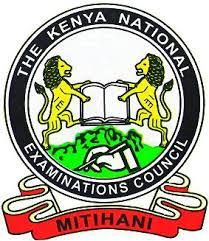
Geography Paper 2 (312/2)
SECTION A
Answer all the questions in this section.
1 (a) Name two exotic breeds of commercial beef cattle reared in Kenya. (2 marks)
(b) Outline two similarities of commercial beef cattle fanning in Kenya and Argentina. (2 marks)
2 (a) Define the term fisheries. (2 marks)
(b) State three ways in which marine fisheries in Kenya can be conserved. (3 marks)
3 (a) Name two prairie provinces of Canada where wheat is grown on a large scale. (2 marks)
(b) Give three physical conditions that favour large scale wheat farming in the prairie provinces of Canada. (3 marks)
4 (a) State three reasons why paper milling industries are located near rivers. (3 marks)
(b) Name three industries in Kenya that use agricultural non-food products as raw materials. (3 marks)
5 (a) State three measures which the government of Kenya has taken to reduce infant mortality. (3 marks)
(b) Give two negative effects of low population growth in a country. (2 marks)
SECTION B
Answer question 6 and any other two questions from this section.
6 Study the photograph below and use it to answer question (a)

(a) (i) What evidence shows that this is a ground general-view photograph? (2 marks)
(ii) Draw a rectangle measuring 12 cm by 8 cm. (1 mark)
(iii) On the rectangle, sketch and label the following features shown on the photograph:
I planted crops (1 mark)
– tree stumps (1 mark)
~ forest (1 mark)
‘ felled trees (1 mark)
– the sky. (1 mark)
(iv) Describe the characteristics of the forest shown on the photograph. (5 marks)
(b) Explain four measures being taken by the Government of Kenya to control human encroachment on forested areas. (8 marks)
(c) Give the differences between softwood forests in Kenya and Canada under the following sub headings:
(i) tree harvesting (2 marks)
(ii) marketing of forest products. (2 marks)
7 Use the map below to answer question a(i) and (ii).

Name
(a) (i) The rivets marked E, F and G. (3 marks)
(ii) The human-made lakes marked H and J. (2 marks)
(iii) Explain four measures which should be taken to improve inland water transport in Africa. (8 marks)
(b) State four ways in which communication contributes to economic development in Kenya. (4 marks)
(c) Explain four problems facing railway transport in Africa. (8 marks)
8 (a) (i) Give four factors common to Kenya and the Netherlands that have favoured horticultural farming. (4 marks)
(ii) State three features of horticultural fanning in the Netherlands, (3 marks)
(b) The table below shows the quantity and value of Kenya’s horticultural exports between June 2008 and June 2009. Use it to answer question (b).

(i) What was Kenya’s total value of exports from horticulture between June 2008 and June 2009? ~ (2 marks)
(ii) Comment on the trend of the quantity of Kenya’s horticultural exports between June 2008 and June 2009. (3 marks)
(iii) Using the data provided, draw a simple line graph to represent the quantity of Kenya’s horticultural exports. (5 marks)
Use a vertical scale of 1 cm to represent 500 metric tonnes.
(c) Explain four difficulties that farmers in Kenya experience in marketing horticultural produce.(8 marks)
9 (a) What is eco-tourism?(2 marks)
(i) Give four tourist attractions found at the coast of Kenya.(4 marks)
(ii) State five problems associated with tourism in Kenya.(5 marks)
(c) State four ways in which game reserves are of benefit to the communities living near them. (4 marks)
(d) Explain the differences between tourism in Kenya and Switzerland. (10 marks)
10 (a) Differentiate between a rural settlement and an urban center. (2 marks)
(b) Explain how the following physical factors influence human settlement:
(i) relief (6 marks)
(ii) climate. (4 marks)
(c) Explain the causes of the following problems in urban centres in Kenya: (i) traffic congestion (4 marks)
(ii) environmental degradation. (4 marks)
(d) (i) Name two towns in Kenya that started as agricultural collection centres. (2 marks)
(ii) Give three social functions of Kisumu town. (3 marks)
